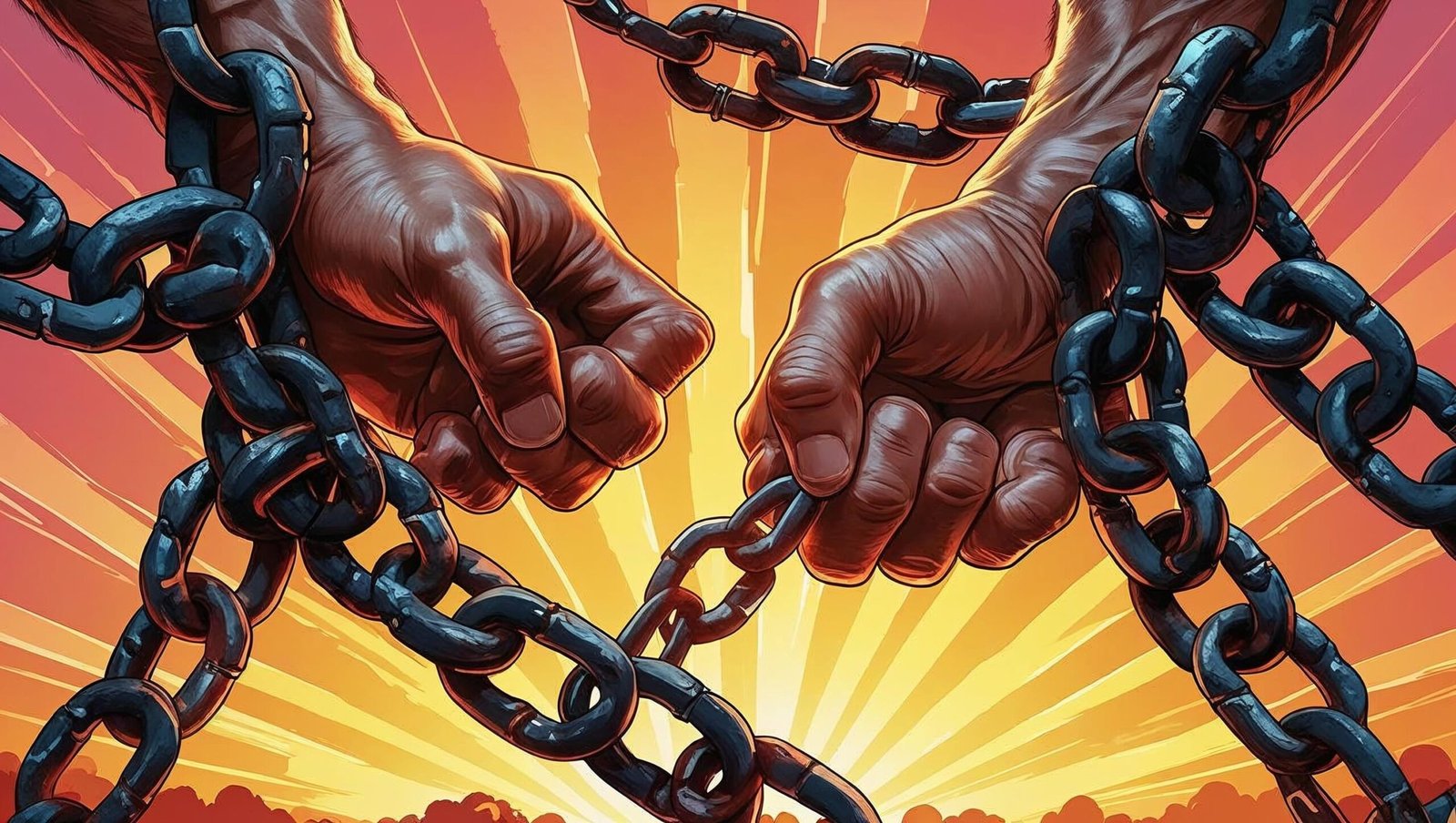Introduction
In a world increasingly obsessed with external validation, The Courage to Be Disliked offers a refreshing and radical perspective. Authored by Ichiro Kishimi and Fumitake Koga, this philosophical dialogue based on Adlerian psychology challenges our assumptions about happiness, success, and the pursuit of approval. Through a series of conversations between a philosopher and a youth, the book dismantles conventional beliefs and provides a new path to personal freedom and fulfillment.
This comprehensive review explores 7 life-changing lessons from The Courage to Be Disliked and how its teachings can empower readers to reclaim their autonomy and redefine the meaning of happiness.

1. You Are Not Defined by Your Past
A central teaching in The Courage to Be Disliked is that we are not determined by past traumas or experiences. Rather than subscribing to Freudian determinism, the book aligns with Adler’s belief that people are guided by their goals, not their past. This means that the reason we struggle today is not because of what happened yesterday, but because of the meaning we assign to those events.
We are not victims of circumstance—we are authors of our own future.
2. All Problems Are Interpersonal Relationship Problems
According to The Courage to Be Disliked, almost every psychological issue can be traced back to difficulties in interpersonal relationships. Whether it is feelings of inferiority, anxiety, or low self-worth, these often stem from how we interact with others and the expectations we internalize.
By recognizing this, we can begin to untangle ourselves from unnecessary conflicts and emotional burdens.
3. The Separation of Tasks
One of the most liberating ideas in The Courage to Be Disliked is the concept of separating tasks. Simply put, we must identify what belongs to us and what belongs to others. For example, worrying about what others think of us is not our task—it’s theirs.
When we stop interfering with others’ tasks and focus on our own, we gain clarity, peace, and freedom.
4. The Goal of Life Is Contribution
The Courage to Be Disliked argues that true happiness comes from feeling useful and making a contribution to the community. This is a departure from seeking individual achievement or validation.
By shifting focus from self-centered goals to communal contribution, we begin to experience a deeper and more lasting form of happiness.
5. The Freedom to Be Disliked
The book’s title, The Courage to Be Disliked, encapsulates one of its most provocative teachings: the idea that being disliked is a sign of living authentically. Trying to please everyone leads to a diluted version of yourself.
True freedom arises when you live in accordance with your values, regardless of how others perceive you.
6. Encouragement Over Praise
The Courage to Be Disliked makes a crucial distinction between praise and encouragement. While praise creates dependency on external validation, encouragement builds internal strength. The goal is not to make others feel superior but to help them recognize their own efforts.
This shift is essential in parenting, education, and leadership.

7. Live in the Present Moment
Lastly, The Courage to Be Disliked emphasizes the importance of living in the here and now. Often, we delay our happiness, waiting for some future event to make us feel complete. But the only moment we truly possess is the present.
When we stop chasing distant goals and start engaging with life as it is, we discover that fulfillment is available now.
Structure and Style
What makes The Courage to Be Disliked unique is its format. The book unfolds as a dialogue between a skeptical youth and a wise philosopher. This structure not only makes philosophical ideas more accessible but also reflects the inner conversation many readers are already having with themselves.
Its conversational style allows readers to digest complex psychological concepts in a natural, engaging way.
Philosophical Foundations
Rooted in Adlerian psychology, The Courage to Be Disliked challenges dominant Freudian and behavioral models. Adler emphasized goals, purpose, and social connection over past trauma and conditioning. The book brings these ideas into the modern era, making them practical for contemporary life.
Relevance in Modern Society
In today’s world of social media and constant comparison, The Courage to Be Disliked offers a liberating alternative. Its teachings are especially relevant for those feeling trapped by societal expectations or the pressure to conform.
The book empowers readers to take control of their lives and live with authenticity.
Beyond the Lessons – Real Life Applications
Beyond the conceptual framework, The Courage to Be Disliked offers deep practical wisdom. Many readers have reported a significant transformation in how they approach parenting, relationships, and career decisions after integrating the book’s lessons. For instance, the separation of tasks can be instrumental in workplace management, allowing professionals to delegate effectively and maintain healthy emotional boundaries.
One powerful takeaway is the realisation that choosing not to seek praise fosters internal motivation. In educational settings, students who are encouraged rather than praised often exhibit greater resilience. The philosophy also resonates in intimate relationships, where accepting that a partner’s reactions are their own task creates a space for emotional autonomy.
Another impactful application comes in the realm of mental health. The concept that trauma does not define an individual can inspire those dealing with depression and anxiety to seek purpose-driven healing. For individuals recovering from past abuse or neglect, The Courage to Be Disliked provides a framework to redefine identity beyond victimhood.
The Role of Community and Belonging
The idea that happiness stems from contribution rather than success redefines our cultural narrative. In an increasingly individualistic world, The Courage to Be Disliked redirects focus to community-oriented goals. Belonging, as per Adlerian theory, is not about fitting in but about being accepted as we are and making meaningful contributions.
Communities, whether local or digital, thrive when individuals stop competing and start supporting. This mindset can transform schools, families, and even corporations. Leaders inspired by The Courage to Be Disliked often find new pathways to foster inclusiveness, empathy, and engagement.

Addressing Criticism of the Book
Although highly praised, The Courage to Be Disliked has not been without criticism. Some readers feel the youth’s transformation occurs too swiftly to be believable. Others argue that certain Adlerian perspectives may seem dismissive of trauma.
However, the authors do not deny the reality of suffering. They simply reframe it—not as a life sentence but as a challenge that can be overcome through meaning and action. The goal is not to erase the past but to stop it from dictating the future.
Furthermore, the book’s repetitive style, which some critique, serves a pedagogical purpose. Reinforcement of key principles helps solidify these radical ideas, particularly for those new to Adlerian thought.
Integrating the Philosophy into Daily Habits
To truly benefit from The Courage to Be Disliked, readers must go beyond passive consumption. Integration requires conscious practice. Start small—by setting boundaries at work, by refusing to over-explain decisions to others, or by making peace with not pleasing everyone.
One effective habit is daily reflection. Ask yourself: “Whose task am I interfering with today?” or “Am I making this decision from a place of courage or fear of judgment?” Over time, this practice cultivates a mindset aligned with the book’s principles.
Another valuable habit is journaling emotional triggers. When you feel upset, analyze whether your emotions are a response to external disapproval. Trace your thoughts to the root. Often, it’s not the event but our interpretation that causes distress. This aligns with the core of The Courage to Be Disliked, teaching us to reinterpret life consciously.
Insights from Reader Experiences
Readers around the globe have shared transformative experiences after engaging with The Courage to Be Disliked. For many, it provided language for a feeling they had but couldn’t express: that authenticity sometimes means isolation, yet it’s worth it.
Teachers have adapted its lessons to classrooms, fostering healthier self-esteem among students. Therapists recommend it to clients as a supplement to sessions. Corporate leaders use its lessons in team-building, especially in navigating interpersonal tension and fostering constructive independence.
This universality proves that The Courage to Be Disliked is not just theoretical—it is usable, tangible, and potent.
Why Simplicity Is Strength
One of the underestimated qualities of The Courage to Be Disliked is its simplicity. Unlike many self-help books that overwhelm readers with jargon and complicated theories, this book returns us to the fundamentals. It invites us to think, feel, and act intentionally without the need for over-analysis.
It does not assume superiority. The dialogue approach encourages the reader to engage critically, to question, and to accept only what resonates. That kind of permission is rare and refreshing.
In this simplicity lies the strength. Because ultimately, clarity enables change.
Expanding the Journey: Eight Additional Reflections
1. The Power of Consistency
True change does not occur in sudden leaps but in consistent, sustained effort over time. When individuals commit to showing up for themselves daily—whether through journaling, meditation, or mindful action—they begin to build a reliable foundation for growth. These repeated small acts accumulate into something much larger: identity transformation. Progress may be slow and subtle, but it is profound and long-lasting.
2. Redefining Failure
Many people internalize failure as a permanent mark on their character. However, failure is not the opposite of success—it is often a stepping stone to it. By reframing setbacks as valuable feedback, we begin to extract lessons instead of shame. This shift in perspective creates a learning mindset and encourages individuals to take more thoughtful risks.
3. Creating Emotional Boundaries
Healthy emotional boundaries are essential for peace of mind. When one learns to distinguish their emotions from those of others, relationships become healthier and more balanced. Boundaries are not barriers; they are structures that define where we end and others begin. This clarity enables individuals to offer support without absorbing emotional turmoil.
4. Finding Meaning in Simplicity
We often overlook the power of simplicity in a culture addicted to productivity and performance. Sometimes, meaning is found not in grand achievements but in quiet, everyday moments—sharing a meal, listening attentively, or simply being present. Learning to appreciate the ordinary can lead to a life filled with contentment and purpose.

5. Building a Resilient Mindset
Resilience is not merely about enduring hardship but learning how to respond with strength and clarity. Developing this mindset requires one to view challenges as invitations to grow. When setbacks are met with curiosity instead of despair, they become opportunities to develop patience, wisdom, and adaptability.
6. The Value of Silence
In silence, we find space to think, reflect, and reset. Our modern lives are filled with constant noise—digital notifications, social demands, and background chatter. Carving out moments of silence helps reset our nervous systems and sharpen our focus. Silence is where true insight often emerges, untainted by external influence.
7. Embracing Uncertainty
Life rarely unfolds according to plan. Learning to be comfortable with uncertainty is essential for emotional well-being. By accepting that we cannot control every outcome, we release the tension that comes from unrealistic expectations. This mindset allows us to flow with change rather than resist it, fostering a sense of openness and curiosity.
8. Celebrating Small Wins
Acknowledging small victories builds momentum and reinforces motivation. In personal development, even minor progress—getting out of bed on a hard day, speaking honestly in a difficult conversation, or saying no when needed—is worth celebrating. These wins accumulate and create a sense of capability that fuels further growth.
9. Cultivating Inner Stillness
In a world constantly pulling our attention outward, cultivating moments of stillness becomes a vital act of self-care. Whether through meditation, deep breathing, or quiet reflection, inner stillness allows us to reset and reconnect with what truly matters. It is in these moments that clarity often emerges, guiding our next steps.
10. Practicing Gratitude Daily
Gratitude is a simple yet powerful tool for emotional well-being. Taking time each day to acknowledge the good—even small blessings—can shift one’s entire outlook. This practice not only fosters positivity but also builds resilience during challenging times. It invites presence and appreciation into the rhythm of daily life.
11. Choosing Response Over Reaction
Our initial response to conflict or stress is often reactive. However, learning to pause and choose our response consciously creates space for maturity and wisdom. This deliberate approach reduces emotional turbulence and strengthens relationships, enabling us to act with intention instead of impulse.
12. Letting Go of Control
Control is often mistaken for security, yet it can lead to rigidity and anxiety. Letting go doesn’t mean giving up; it means trusting the process and allowing life to unfold naturally. When we release the need to micromanage outcomes, we create space for spontaneity, growth, and authentic experience.

13. Embracing Creative Expression
Creativity is a natural human trait, often suppressed by fear of judgment or failure. When people engage in creative activities—whether writing, painting, dancing, or crafting—they access a deeper part of themselves. These expressions provide more than joy; they become tools for healing, communication, and discovery. Embracing creativity encourages one to think beyond limitations and explore possibilities. It’s not about perfection but about the courage to express one’s inner world without restraint. Engaging creatively allows emotional release and nurtures self-trust, which can positively influence many other areas of life.
FAQs about The Courage to Be Disliked
Q1: Is this book based on a true story?
A: No, it is a fictional dialogue intended to explore philosophical and psychological ideas.
Q2: Can it help with anxiety or self-esteem issues?
A: Yes, many readers have found its teachings helpful in managing anxiety, self-doubt, and the fear of judgment.
Q3: Is it suitable for young readers?
A: Absolutely. Its accessible language and universal themes make it suitable for teenagers and adults alike.
Q4: How long does it take to read?
A: Most readers can finish it in a few sittings, but its insights may stay with you much longer.
Q5: How does it compare with other self-help books?
A: The Courage to Be Disliked goes beyond superficial motivation, offering philosophical depth rooted in psychological research. It’s especially valuable for those seeking genuine transformation.
Conclusion
The Courage to Be Disliked is more than a self-help book; it is a transformative guide to reclaiming personal freedom and building a fulfilling life. By applying its principles, readers can learn to separate themselves from societal pressures, cultivate genuine self-worth, and live in the present.
With its roots in Adlerian psychology and a fresh narrative style, The Courage to Be Disliked delivers wisdom that is both timeless and urgently needed today. For anyone willing to embrace discomfort in exchange for growth, this book is a must-read.
Published by: shubhanshuinsights.com
Your destination for reflective book reviews and practical life wisdom.
💬 Comment Suggestions
- Have you embraced the courage to be disliked in your own life?
- Which idea from the book do you find most transformative?
- How do you handle the fear of rejection or judgment?
- What’s your perspective on living authentically in today’s world?
- Let’s discuss: Is approval truly necessary for happiness?
Thank you for reading and reflecting—your time and thoughts are truly appreciated. Stay curious, live fully, and continue growing daily.